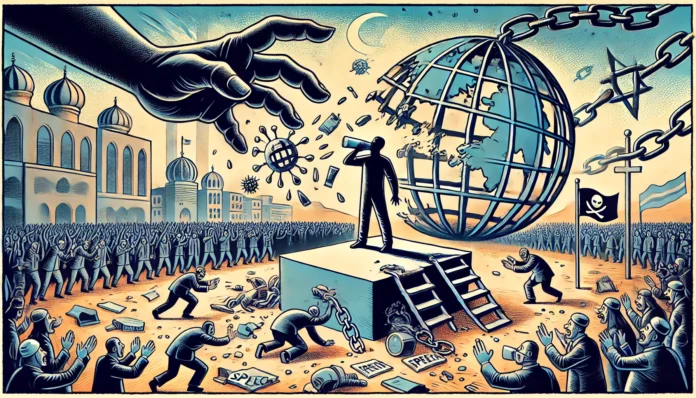Fighting Atheist Discrimination: Recent Cases Spark Debate
In recent years, the issue of discrimination against atheists has moved from the shadows into the spotlight, as a series of high-profile cases and public debates have forced a national conversation about the rights and protections of nonbelievers. From workplace bias to social exclusion, atheists in the United States continue to face unique challenges—despite constitutional guarantees of religious freedom and equal treatment.
Recent Lawsuits Highlight Persistent Bias
One of the most significant developments in 2025 is a lawsuit filed in Colorado, where an atheist employee alleged workplace discrimination based on his lack of religious belief. According to The Employer Handbook, the plaintiff claimed he was subjected to repeated proselytizing, exclusion from team activities, and negative performance reviews after declining to participate in prayer sessions. The case has drawn national attention, with legal experts noting that Title VII of the Civil Rights Act protects not only religious believers but also those who do not subscribe to any faith.
This Colorado case is not an isolated incident. In recent years, the Equal Employment Opportunity Commission (EEOC) has updated its guidance to clarify that protections against religious discrimination extend to atheists and agnostics. The EEOC states, “The law protects not only people who belong to traditional, organized religions, but also others who have sincerely held religious, ethical or moral beliefs—including those who do not believe.” This clarification has empowered more nonbelievers to come forward with complaints of bias and unfair treatment.
Workplace Discrimination: A Widespread Problem
Despite these legal protections, workplace discrimination against atheists remains a widespread problem. A 2024 survey by the Secular Coalition for America found that nearly 30% of self-identified atheists reported experiencing some form of bias or exclusion at work. Common issues include being passed over for promotions, facing pressure to participate in religious activities, and enduring derogatory comments from colleagues or supervisors.
One respondent, a software engineer in Texas, described being excluded from team lunches held at a local church and receiving lower performance evaluations after declining to join in prayer. “It was clear that my lack of belief made me an outsider,” she said. “I felt like I had to hide who I was just to keep my job.”
Social Exclusion and Public Stigma
Beyond the workplace, atheists often face social exclusion and public stigma. In some communities, openly identifying as an atheist can lead to ostracism, strained family relationships, or even threats of violence. According to a 2025 report by the American Humanist Association, nearly half of respondents said they had concealed their beliefs from friends or family out of fear of negative repercussions.
Public figures who identify as atheists have also faced backlash. In 2024, a city council member in Alabama was the target of a recall campaign after publicly stating her nonbelief, with opponents arguing that “atheists cannot be trusted to uphold community values.” Such incidents underscore the persistent stigma that nonbelievers face, even in positions of public trust.
Legal Protections and the Path Forward
While the First Amendment and federal laws like Title VII provide a legal framework for protecting atheists from discrimination, enforcement remains inconsistent. Many employers and institutions are unaware of their obligations, and some actively resist efforts to create inclusive environments for nonbelievers.
Advocacy groups such as the Freedom From Religion Foundation and the Secular Coalition for America have stepped up efforts to educate the public and support legal challenges. These organizations offer resources for individuals facing discrimination and work to ensure that the rights of atheists are recognized and respected.
Legal experts point out that recent lawsuits, like the Colorado case, are likely to set important precedents. As more nonbelievers assert their rights in court, employers and policymakers will be forced to reckon with the reality that discrimination against atheists is both illegal and socially unacceptable.
Public Debate and Changing Attitudes
The recent wave of lawsuits and public debates has sparked a broader conversation about the place of atheists in American society. Opinion polls show that while acceptance of nonbelievers is slowly increasing, significant barriers remain. A 2025 Pew Research Center survey found that 60% of Americans still view atheists less favorably than members of most religious groups.
Nevertheless, advocates are optimistic that increased visibility and legal action will lead to greater acceptance and equal treatment. “Every time an atheist stands up for their rights, it chips away at the stigma,” said Monica Miller, legal director at the American Humanist Association. “We are seeing real progress, but there is still much work to be done.”
Looking Ahead
As the legal landscape evolves and public awareness grows, the fight against atheist discrimination is entering a new phase. Recent cases have not only highlighted the challenges faced by nonbelievers but have also prompted a national reckoning with the meaning of true religious freedom. For many, the hope is that these efforts will pave the way for a more inclusive and equitable society—one in which everyone, regardless of belief or nonbelief, is treated with dignity and respect.

